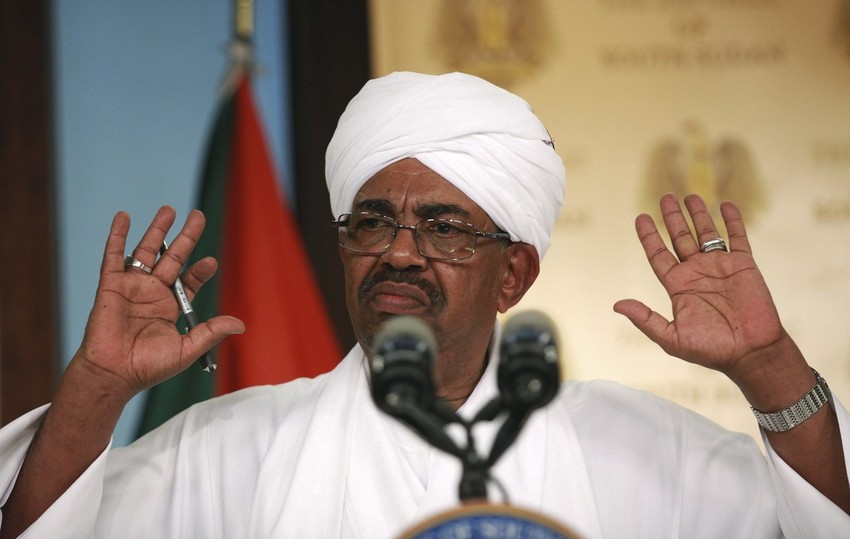Wessam Haridi, Mohamed Mahfouz and Abdullah al-Bijawi
Sudan keeps adopting positions that harm Egypt’s national interests and security.
Having backed Ethiopia in negotiations over the Renaissance Dam which will significantly trim Egypt’s share of the water of the Nile, Sudanese President Omar al-Bashir agreed to give Turkey administrative control over the Red Sea island of Sawaken.
Turkey’s indefinite control over the island is yet a new stab in Egypt’s back by Sudan.
Losing in Libya
Soon after the so-called Islamic State of Iraq and Syria (ISIS) declared the founding of its presumed Islamic caliphate in Syria and Iraq, international intelligence agencies started talking about the routes militants took to reach the caliphate. This was when Sudan was mentioned as a transit point for terrorists headed to Syria and Iraq to join in ISIS.
Some of those who quit ISIS testified to reaching the organization through Turkish territories and under protection from Turkish authorities. Sudan played the same role, having turned into a transit state for the terrorists.
Sudan also emerged as a preferred destination for ISIS militants after the presumed caliphate collapsed. In this, the country is functioning as a transit point for ISIS terrorists before their return to their home countries.
The Sudanese government, Libyan political analyst Mohamed al-Zubaidi said, turns a blind eye to ISIS militants entering Sudan after their return from Syria and Iraq.
He added that Khartoum also turns a blind eye when the same militants leave Sudan and head to their countries.
“Libya suffered a lot because of the flow of terrorists from Sudan to it,” al-Zubaidi told al-Bawaba newspaper. “What happens now is that the same terrorists are heading back to Sudan after they were defeated in Libya.”
He said after entering Sudan, the same terrorists travel to other African countries in order to stay away from the limelight until they are summoned on other missions in the future.
The Sudanese regime, al-Zubaidi said, turns a blind eye to the entry and exit of terrorists for ideological reasons as well as regional and international relations considerations.
Thorn in Egypt’s side
Alaa Ali, an African affairs’ specialist, said progress in relations between Sudan and Turkey started to happen at a time relations between Egypt and Turkey were deteriorating because of support to the Muslim Brotherhood and the ousted Islamist president, Mohamed Morsi, by the Turkish regime.
Disputes, he said, also started to emerge between Cairo and Khartoum like, for example, in the case of Sudan’s claims in relation to the Egyptian Halayeb and Shalateen Triangle.
Ali said progress in ties between Sudan and Turkey comes against the background of differences between Sudan and Egypt.
“This is particularly true after Bashir shut down all schools and charities affiliated to Turkish preacher and opposition figure, Fethullah Gulen,” Ali said. “Bashir also handed all Turkish opposition figures over to the Turkish intelligence.”
This, he said, opened the door wide for an unprecedented rapprochement between Khartoum and Istanbul.
The visit Turkish President, Recep Tayyip Erdogan, paid recently to Sudan was the first by a Turkish head of state since 1954, the same date of Sudan’s independence, Ali said.
Erdogan, he said, tried to give his visit a historical dimension, given the fact that Sawaken Port was the headquarters of Ottoman rule in the 18th century.
“Turkey wants to be in Sawaken to be in close proximity to volatile areas in the Middle East,” Ali said. “It wants to be in close proximity to Yemen and Saudi Arabia.”
He added that the Turkish president also wants Sawaken to turn into a pressure card against Egypt in the coming days.
Turkey plans to invest $10 million in Sudan. Erdogan accompanied 200 businessmen from his country on his visit to Sudan. He signed nine agreements for the implementation of agricultural and industrial projects in Sudan. These projects will include animal slaughterhouses for the export of meat and steel and makeup factories. Turkey also plans to construct an airport in Khartoum.
Turkey has been trying to boost its presence in Africa for some time now. In 2012, it founded a military base in Somalia and Djibouti. It makes efforts now to strengthen its relations with Ethiopia.
International relations expert, Amr al-Choubaki, said Turkey moves to defend its own interests.
“It wants to have influence outside its own borders,” he said. “It specifically wants this influence to be strong in Africa and the Arab region.”
He expressed hopes that Egypt can work to strengthen its presence in Africa and stop thinking about Turkey.
This is particularly important, he said, after Africa has turned into an important stage for the operations of intelligence agencies from Turkey, Israel and Iran.
Choubaki noted that Bashir also wanted to settle old scores with Egypt, being a member of the Muslim Brotherhood.
He said the Sudanese president uses the Halayeb and Shalateen issue as a pressure card against Egypt only at times when relations with Cairo are strained.







































admin in: How the Muslim Brotherhood betrayed Saudi Arabia?
Great article with insight ...
https://www.viagrapascherfr.com/achat-sildenafil-pfizer-tarif/ in: Cross-region cooperation between anti-terrorism agencies needed
Hello there, just became aware of your blog through Google, and found ...